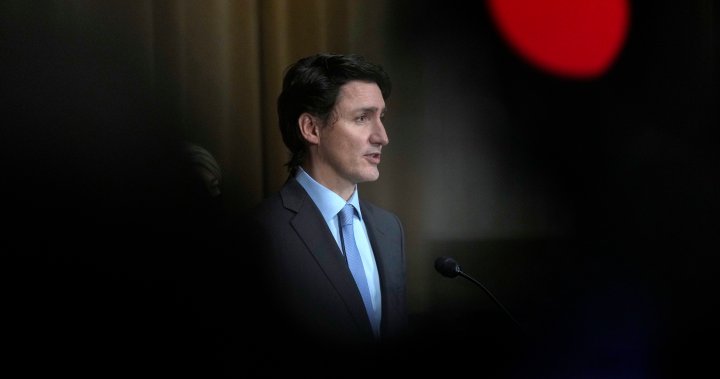
Trudeau revokes Emergencies Act after convoy blockades end
Global News
Prime Minister Justin Trudeau invoked the Emergencies Act for the first time in Canadian history as a response to the so-called "Freedom Convoy" blockades.
Prime Minister Justin Trudeau is revoking the Emergencies Act after 10 days that have seen police crack down to clear out hundreds of demonstrators with the so-called “Freedom Convoy” who had encamped in the nation’s capital for three weeks.
Trudeau made the announcement to end the use of the emergency powers at a press conference on Wednesday.
The legislation, which replaced the contentious War Measures Act in 1988, allowed Trudeau’s government to declare the areas around Parliament Hill a place of prohibited assembly and granted RCMP the ability to share information about supporters of the convoy with financial institutions in order to freeze accounts.
Police from multiple jurisdictions in Ottawa used a gradually increasing level of force against demonstrators following dozens of warnings for them to leave the area in a push that began on Thursday evening and lasted through Sunday.
Nearly 200 people have been arrested and are facing nearly 400 charges. Several of the leading organizers and figures in the convoy now behind bars: one of them, Tamara Lich, was denied bail on Tuesday while Pat King is awaiting a continuation of his bail hearing set to take place on Friday.
Chris Barber is the only one of the leaders so far to have been granted bail.
Trudeau invoked the Emergencies Act for the first time in Canadian history on Feb. 14 as a response to the so-called “Freedom Convoy” blockades.
The move came after the convoy had been encamped on the streets of downtown Ottawa for three weeks, with multiple other blockades attempting to shut down border crossings in Windsor, Ont., Emerson, Man., and Coutts, Alta.

 Run 3 Space | Play Space Running Game
Run 3 Space | Play Space Running Game Traffic Jam 3D | Online Racing Game
Traffic Jam 3D | Online Racing Game Duck Hunt | Play Old Classic Game
Duck Hunt | Play Old Classic Game











